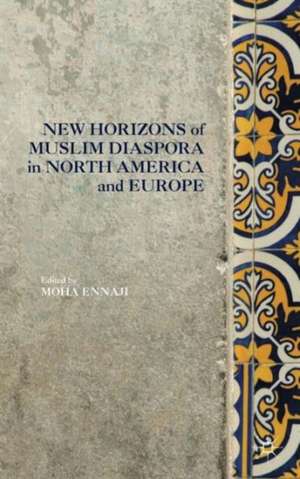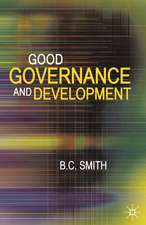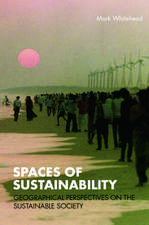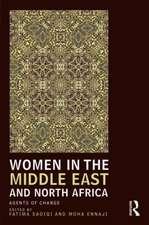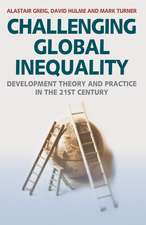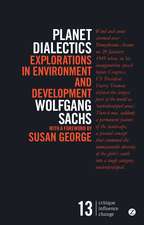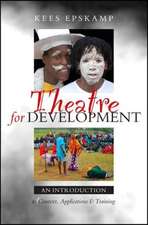New Horizons of Muslim Diaspora in Europe and North America
Editat de Moha Ennajien Limba Engleză Hardback – 15 feb 2016
Preț: 590.16 lei
Preț vechi: 694.31 lei
-15% Nou
Puncte Express: 885
Preț estimativ în valută:
112.94€ • 122.64$ • 94.87£
112.94€ • 122.64$ • 94.87£
Carte tipărită la comandă
Livrare economică 23 aprilie-07 mai
Preluare comenzi: 021 569.72.76
Specificații
ISBN-13: 9781137565242
ISBN-10: 1137565241
Pagini: 282
Ilustrații: XI, 282 p.
Dimensiuni: 155 x 235 x 18 mm
Greutate: 0.59 kg
Ediția:1st ed. 2016
Editura: Palgrave Macmillan US
Colecția Palgrave Macmillan
Locul publicării:New York, United States
ISBN-10: 1137565241
Pagini: 282
Ilustrații: XI, 282 p.
Dimensiuni: 155 x 235 x 18 mm
Greutate: 0.59 kg
Ediția:1st ed. 2016
Editura: Palgrave Macmillan US
Colecția Palgrave Macmillan
Locul publicării:New York, United States
Cuprins
Introduction: Contextualizing Muslim Diaspora in Europe and North America; Moha Ennaji
Part I HISTORICAL AND ANTHROPOLOGICAL BACKGROUND
1. A Season of Migration to the West: The Arab-Muslim Diaspora in the United States: Political Ethos and Praxis; Younes Abouyoub
2. 'American Citizens of Arabic-speaking Stock': The Institute of Arab American Affairs and Questions of Identity in the Debate over Palestine; Denise Laszewski Jenison
3. The Master, the Pir and their Followers in Diaspora: Gülen's Followers (Hizmet) and the Maktab Tariqat Oveyssi Shahmaghsoudi; Sherifa Zuhur
4. Muslim Diaspora in Europe and Cultural Diversity; Moha Ennaji
Part II MUSLIM DIASPORA, MULTICULTURALISM, AND IDENTITY ISSUES
5. Muslim migrants and the push for religious multiculturalism in Canada; Haideh Moghissi
6. 'I'm not different – because everybody is different.': Notions of belonging amongst Muslims in the Netherlands; Lenie Brouwer
7. Telling and Retelling Karbal?': The Transnational Effect of the Use of Shi'a Narratives on Political and Social Participation amongst Shi'as in the United States; Cyrus Ali Contractor
8. The Immigrant Food and 'Trans-Memory' of Home in Diana Abu-Naber's The Language of Baklava and Elif Shafak's Honor; Eda Dedebas Dundar
Part III REFLECTIONS ON MUSLIM DIASPORIC WOMEN
9. Women and Islam in the Western media; Karen Vintges
10. Muslim North African Women and Migration in the Context of Globalization; FatimaSadiqi
11. Multiculturalism in Muslim America?: The Case of Health Disparities and Discrimination in 'Arab Detroit,' Michigan; Marcia C. Inhorn
12. Voicing Resistance, Sharing Struggle: Muslim Women facing Canadian Gender, Race and Ethnic Oppression; Naima Bendriss
Part IV ASPECTS OF INTEGRATION, DISCRIMINATION AND ISLAMOPHOBIA
13. Salafism and Democracy – A German Debate; Susanne Schröter
14. Muslims in the Netherlands: a threatening community or a community under threat?; Jan Jaap de Ruiter
15. Polygyny and the Performance of Gendered Power Among African American Muslims; Debra Majeed
16. Muslim-Americans: Between the Challenge of Policing and Freedom of Expression; Elizabeth Bishop
Notes on Contributors
Index
Part I HISTORICAL AND ANTHROPOLOGICAL BACKGROUND
1. A Season of Migration to the West: The Arab-Muslim Diaspora in the United States: Political Ethos and Praxis; Younes Abouyoub
2. 'American Citizens of Arabic-speaking Stock': The Institute of Arab American Affairs and Questions of Identity in the Debate over Palestine; Denise Laszewski Jenison
3. The Master, the Pir and their Followers in Diaspora: Gülen's Followers (Hizmet) and the Maktab Tariqat Oveyssi Shahmaghsoudi; Sherifa Zuhur
4. Muslim Diaspora in Europe and Cultural Diversity; Moha Ennaji
Part II MUSLIM DIASPORA, MULTICULTURALISM, AND IDENTITY ISSUES
5. Muslim migrants and the push for religious multiculturalism in Canada; Haideh Moghissi
6. 'I'm not different – because everybody is different.': Notions of belonging amongst Muslims in the Netherlands; Lenie Brouwer
7. Telling and Retelling Karbal?': The Transnational Effect of the Use of Shi'a Narratives on Political and Social Participation amongst Shi'as in the United States; Cyrus Ali Contractor
8. The Immigrant Food and 'Trans-Memory' of Home in Diana Abu-Naber's The Language of Baklava and Elif Shafak's Honor; Eda Dedebas Dundar
Part III REFLECTIONS ON MUSLIM DIASPORIC WOMEN
9. Women and Islam in the Western media; Karen Vintges
10. Muslim North African Women and Migration in the Context of Globalization; FatimaSadiqi
11. Multiculturalism in Muslim America?: The Case of Health Disparities and Discrimination in 'Arab Detroit,' Michigan; Marcia C. Inhorn
12. Voicing Resistance, Sharing Struggle: Muslim Women facing Canadian Gender, Race and Ethnic Oppression; Naima Bendriss
Part IV ASPECTS OF INTEGRATION, DISCRIMINATION AND ISLAMOPHOBIA
13. Salafism and Democracy – A German Debate; Susanne Schröter
14. Muslims in the Netherlands: a threatening community or a community under threat?; Jan Jaap de Ruiter
15. Polygyny and the Performance of Gendered Power Among African American Muslims; Debra Majeed
16. Muslim-Americans: Between the Challenge of Policing and Freedom of Expression; Elizabeth Bishop
Notes on Contributors
Index
Recenzii
"New Horizons of Muslim Diaspora in North America and Europe is a timely and wide-ranging volume that provides significant new insights into a topic that continues to increase in relevance and importance. The 16 contributions from scholars from a range of backgrounds explore an impressive array of aspects of Muslim diasporic communities, from religion to gender and from economics to cuisine, to help explain the contemporary experience. They record the remarkable diversity of the communities and their contexts while at the same time noting common challenges such as discrimination and debates over identity. As a whole, the book makes a crucial and informed contribution to a subject and a debate that more often than not elicit more heat than light." – Michael Willis, University of Oxford, UK
"Professor Moha Ennaji has edited an important, well-researched, and inspiring book. It should be read by scholars, journalists, and politicians alike. It says important things about our common future, in America and Europe." – Fouad Laroui, University of Amsterdam, Netherlands
"This volume, edited by Moha Ennaji, one of Morocco's most prolific and perceptive public intellectuals, provides a much-needed survey of a critical global issue – the complexities of the Muslim diasporic experience in North America and Europe. With contributions from recognized authorities on this question, the book displays both historical depth and a sensitivity to contemporary culturaland social matters, including those relating to gender; it will add significantly to our knowledge and understanding of both the immigrant experience and responses in the host countries." – Kevin Dwyer, Columbia University, USA
"Professor Moha Ennaji has edited an important, well-researched, and inspiring book. It should be read by scholars, journalists, and politicians alike. It says important things about our common future, in America and Europe." – Fouad Laroui, University of Amsterdam, Netherlands
"This volume, edited by Moha Ennaji, one of Morocco's most prolific and perceptive public intellectuals, provides a much-needed survey of a critical global issue – the complexities of the Muslim diasporic experience in North America and Europe. With contributions from recognized authorities on this question, the book displays both historical depth and a sensitivity to contemporary culturaland social matters, including those relating to gender; it will add significantly to our knowledge and understanding of both the immigrant experience and responses in the host countries." – Kevin Dwyer, Columbia University, USA
Notă biografică
Moha Ennaji is Professor at the University of Fès, Morocco. He is a specialist of language, migration, and gender studies, with many publications in culture, minority, and ethnicity issues; for example, Ennaji's most book recent book is titled Muslim Moroccan Migrants in Europe. He is co-founder and president of the International Institute for Languages and Cultures, Fès, Morocco.
Textul de pe ultima copertă
The authors in this book criticize the essentialist approach to the concept of culture which reduces all diasporic Muslims to one category and ignores other important factors that shape the attitudes and behaviors of Muslims in the West, particularly their socio-economic status, gender, age, education, social class, and attitude toward religion and the Western lifestyle. The majority of Muslims in North America and Europe are reluctant to be reduced to 'Muslim,' although some of them feel obliged to accept the label. In this volume, the various chapters reveal that diasporic Muslims are heterogeneous, given their diverse cultures and ethnicities; they are actually divided, not united, and have different views and interpretations of Islam and various attitudes and representations of Western realities. Due to their marginalization and often low social status, some Muslims turn to religion and traditional values and practices to overlook for their socio-economic exclusion from European or American society.
